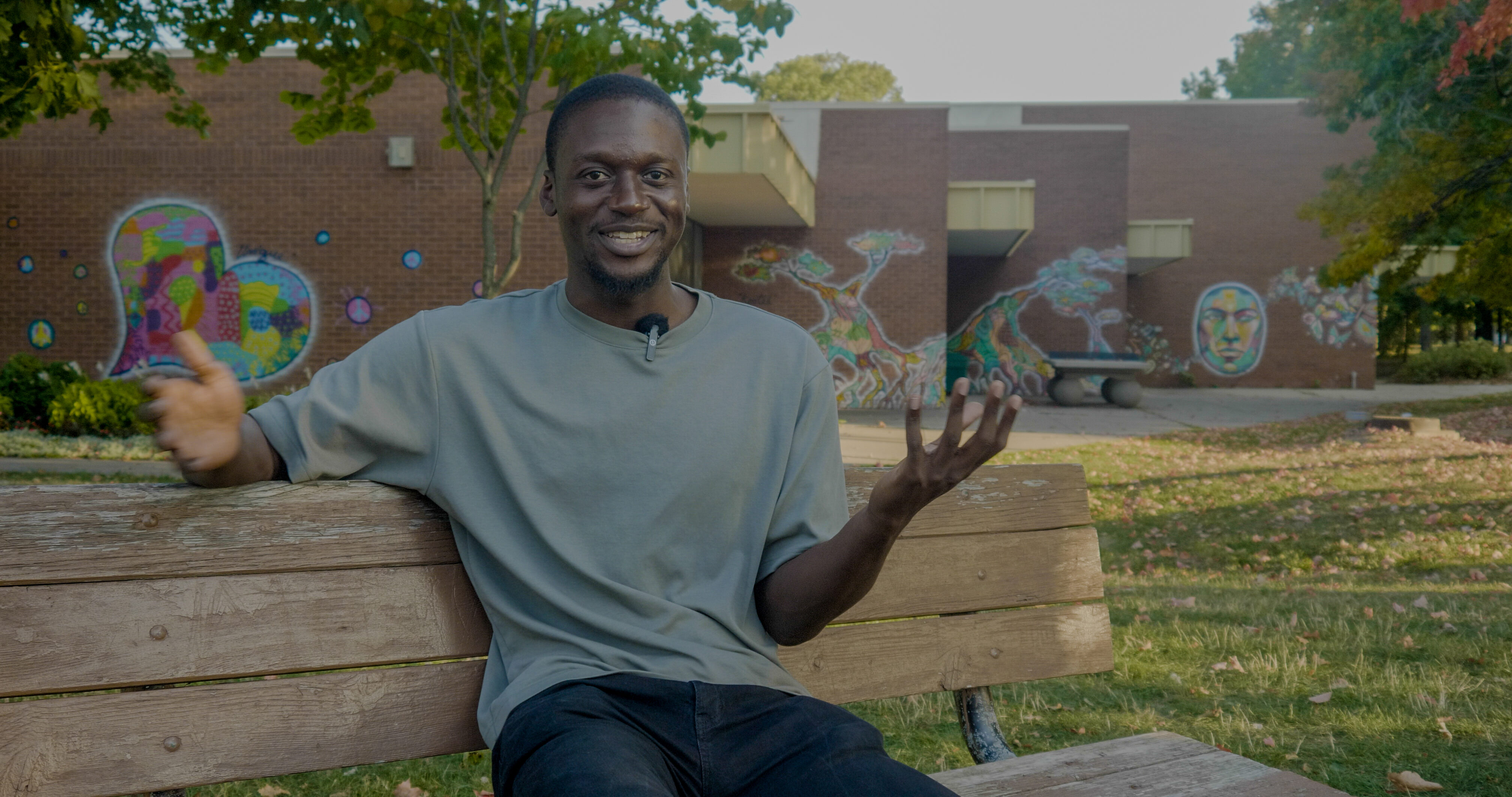THE GREEN LINE
ORIGINAL STORY
How Little Jamaica is preserving local culture with Toronto’s first Black-led land trust
The Green Line team visited Briar Hill-Belgravia to learn how the Little Jamaica Community Land Trust is preserving local culture amid the Eglinton Crosstown LRT construction and development in the neighbourhood.

Anyika Mark, coordinator of the Little Jamaica Community Land Trust, stands in front of a Jamaican restaurant on Eglinton Avenue West.
📸: David Piedra for The Green Line.

AMANDA SERAPHINA JAMES RAJAKUMAR
Indian immigrant with a post-grad in journalism from Centennial College. Now living in Grange Park, meeting new people, and hearing different stories. Has four names, so it’s a pick-your-player situation.

MARY NEWMAN
British-Canadian journalist with a decade’s experience producing for the BBC and CBC. Hails from Robin Hood country so naturally hates wealth inequality and loves organized labour. Now resides in the dog paradise of Roncesvalles.
July 11, 2025
Tips to start a land trust from the Canadian Network of Community Land Trusts
- Gather a group of people in the neighbourhood who are passionate about community development and success.
- Come up with your mission statement and core values.
- Establish the foundation of a non-profit, including membership criteria and governance bylaws. For an example, check out the Parkdale Neighbourhood Land Trust’s bylaws.
- Recruit a board of directors and build a plan for funding.
- Determine properties to acquire.
- Organize events in the community to bring people together and spread the word.
Little Jamaica is known for its jerk barbecue and reggae music, but what if these distinctive smells and sounds disappeared?
In anticipation of the Eglinton Crosstown LRT’s opening, residents came together to form the Little Jamaica Community Land Trust in 2024 — Toronto’s first Black-led land trust — to protect their neighbourhood and culture from gentrification.
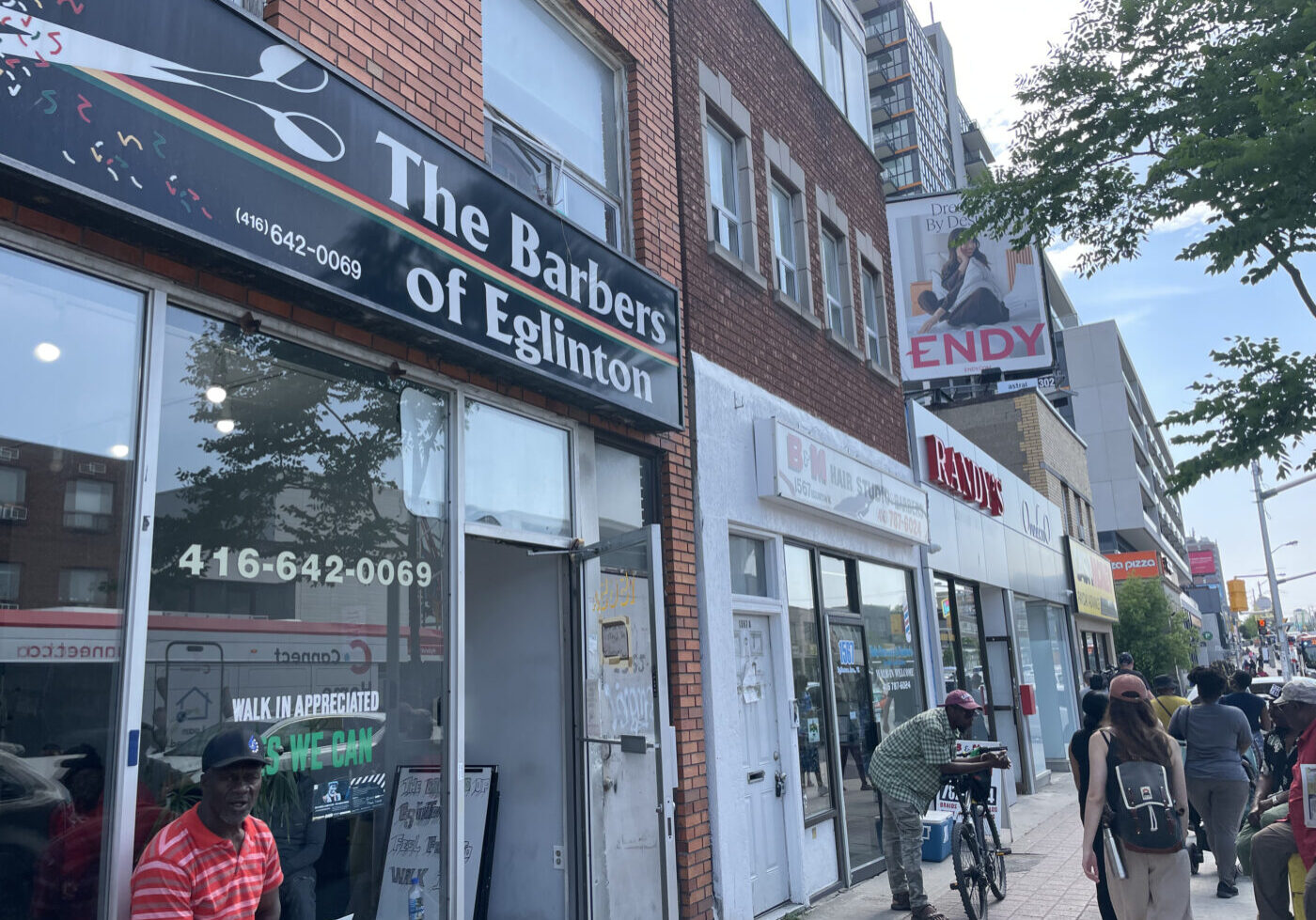
Black-owned businesses along Eglinton Avenue West.

Rich in Afro-Caribbean culture, Little Jamaica on Eglinton Avenue West has been home to hundreds of local Black-owned businesses since 1958. But since the summer of 2011, construction of the Eglinton LRT has driven over 140 Black-owned businesses to close, including some that had been around for decades. While supporters say the new line improves commuting, critics argue the construction could lead to gentrification.
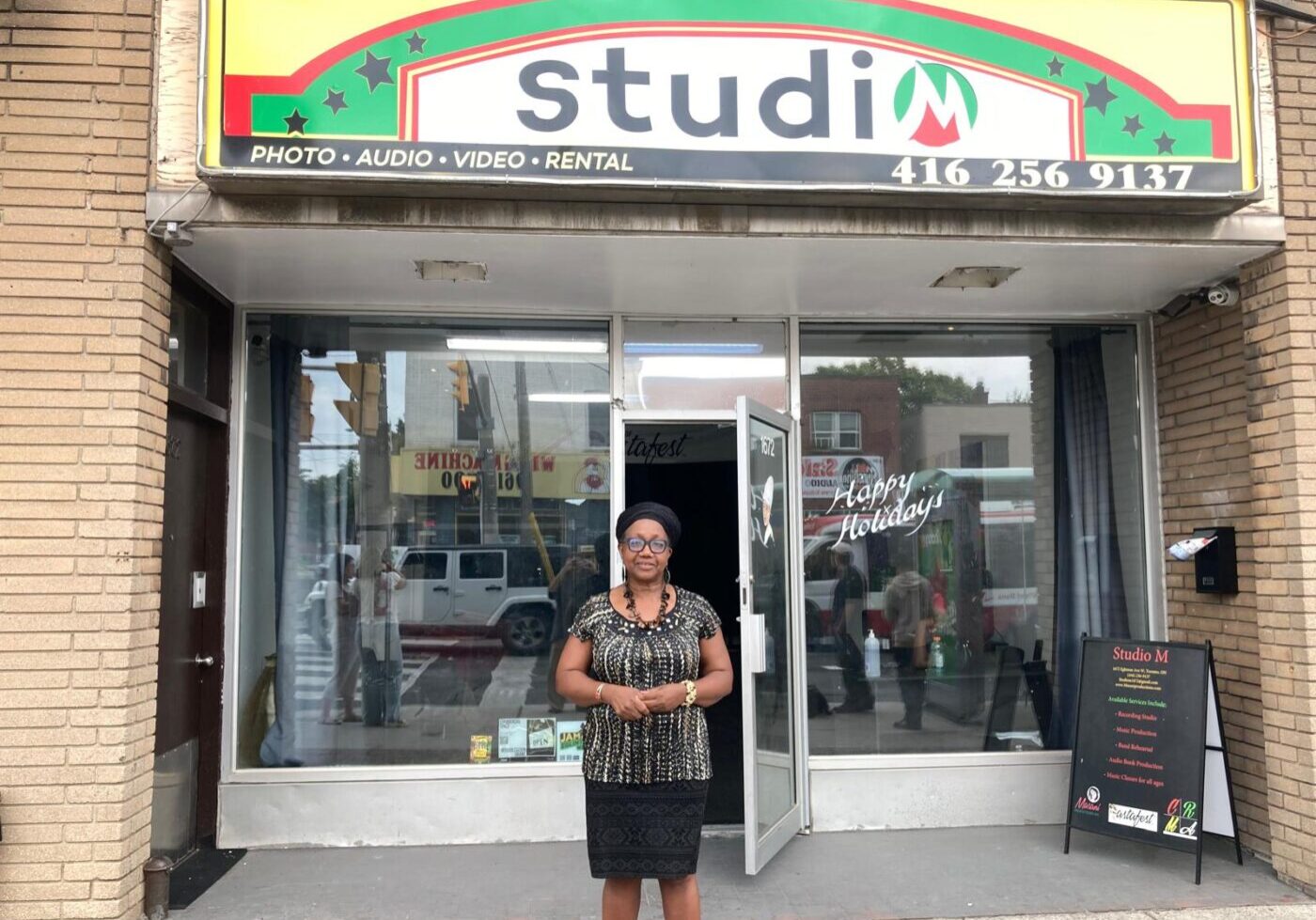
Masani Montague, owner of Studio M in Little Jamaica, stands in front of her store on 1672 Eglinton Ave. W.

Masani Montague, who owns community hub Studio M on 1672 Eglinton Ave. W., has seen Little Jamaica grow since the 1970s. She says many local businesses had to shut down because of COVID-19 and the recent construction. “I mean, let's be real: There were no customers. No customers, you can't pay the rent. You can't pay the rent, the landlord locks the door on you. You move out, right?”
Black people built Little Jamaica in the ‘70s, according to Montague, but they’re not benefiting from the development of the new transit line or condos.
“The Black community — we do need help because we did pay our dues,” she explains. “We helped build this country. We helped build these communities.”
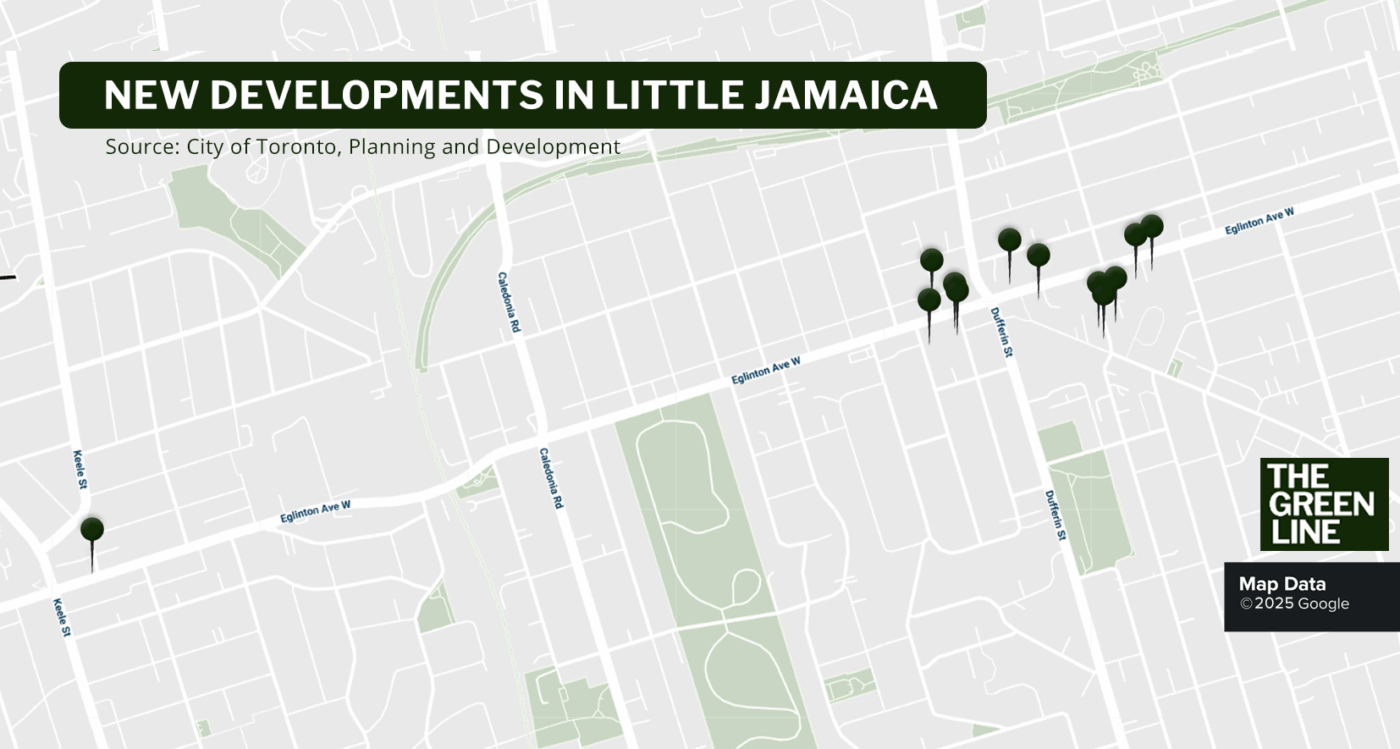
A map of new developments in Little Jamaica along Eglinton Avenue West according to the City of Toronto’s Planning and Development team.

With the Eglinton LRT's anticipated arrival in September, Briar Hill-Belgravia saw an increase in developers buying properties. So residents worked with Toronto-St.Paul’s Coun. Josh Matlow to push for inclusionary zoning, which requires developers to include affordable housing units in new developments. He also raised a motion that enables Black-owned businesses to have the first right of refusal for retail spaces near LRT stations.
Matlow says change in Little Jamaica is inevitable, but emphasizes the need to have a clear vision for neighbourhood growth that keeps affordable residential and commercial spaces in mind.
“The laws by the provincial government don't ensure affordability, neither commercial nor residential. So that's why we as a community are getting creative because if there's a developer who will work with us in good faith, then we will expedite the process," he explains.
"If [developers are] not willing to work with the community, then we're not going to work with them.”
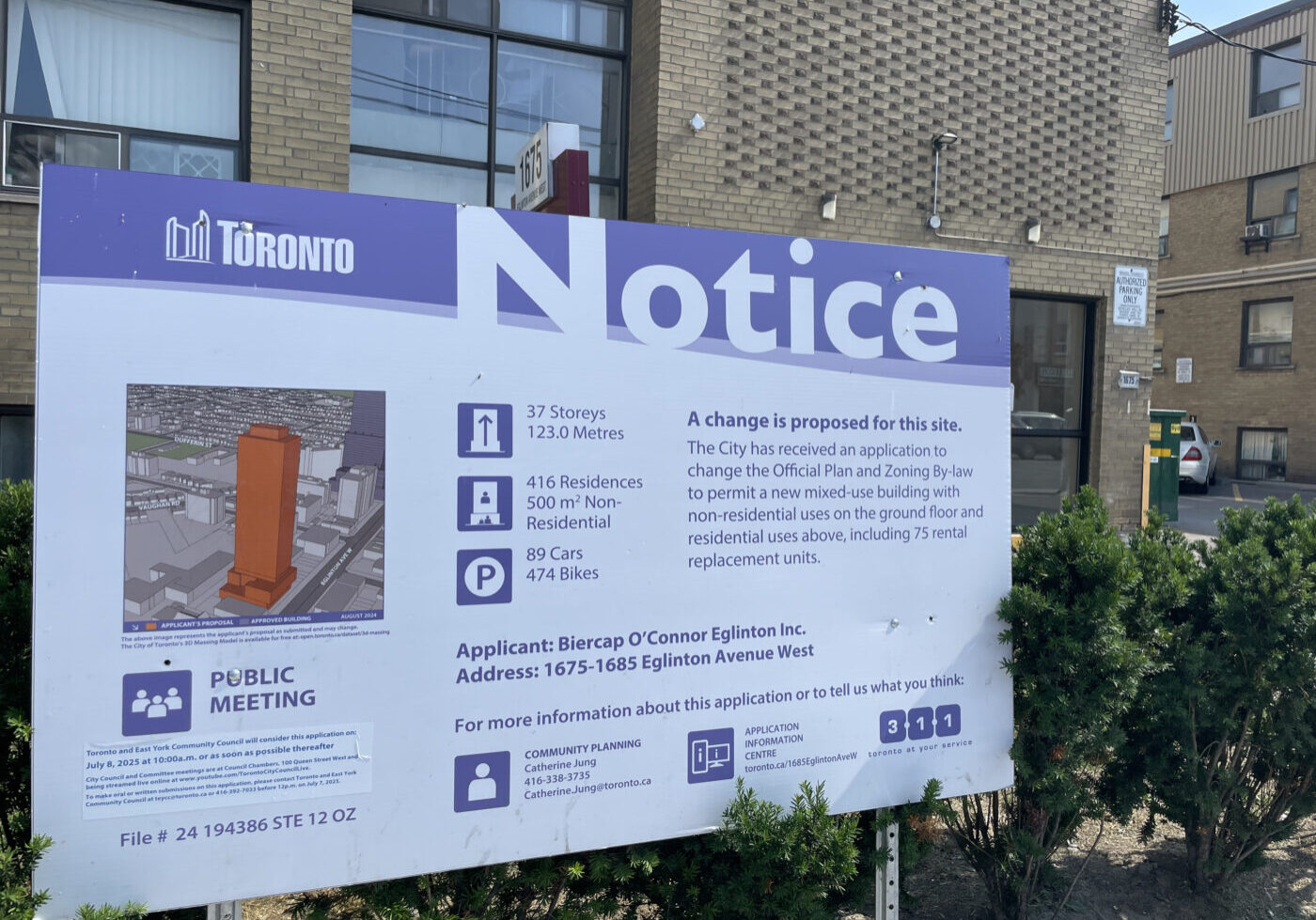
Notice of development of a 37-storey building on 1675 to 1685 Eglinton Ave. W.

In 2018, residents formed Black Urbanism Toronto (BUTO), which empowers locals to participate in community development. One of the non-profit’s goals is for Black people to stay in their neighbourhood through shared ownership. BUTO launched the Little Jamaica Community Land Trust a year ago.
Anyika Mark, coordinator of the Little Jamaica Community Land Trust, says land trusts are inclusive in nature, but emphasizes that a Black-led land trust focuses on Black community members.
“We're really set on prioritizing Black folks — that they're the leaders, they're the board of directors, they're the voting membership,” she explains. “So that they really are the people making decisions in their neighbourhood, in their community and for their people, as well.”
Mark says the land trust model prioritizes democracy, bringing residents together to make a collective decision that’s profitable to the entire community and not just one individual.
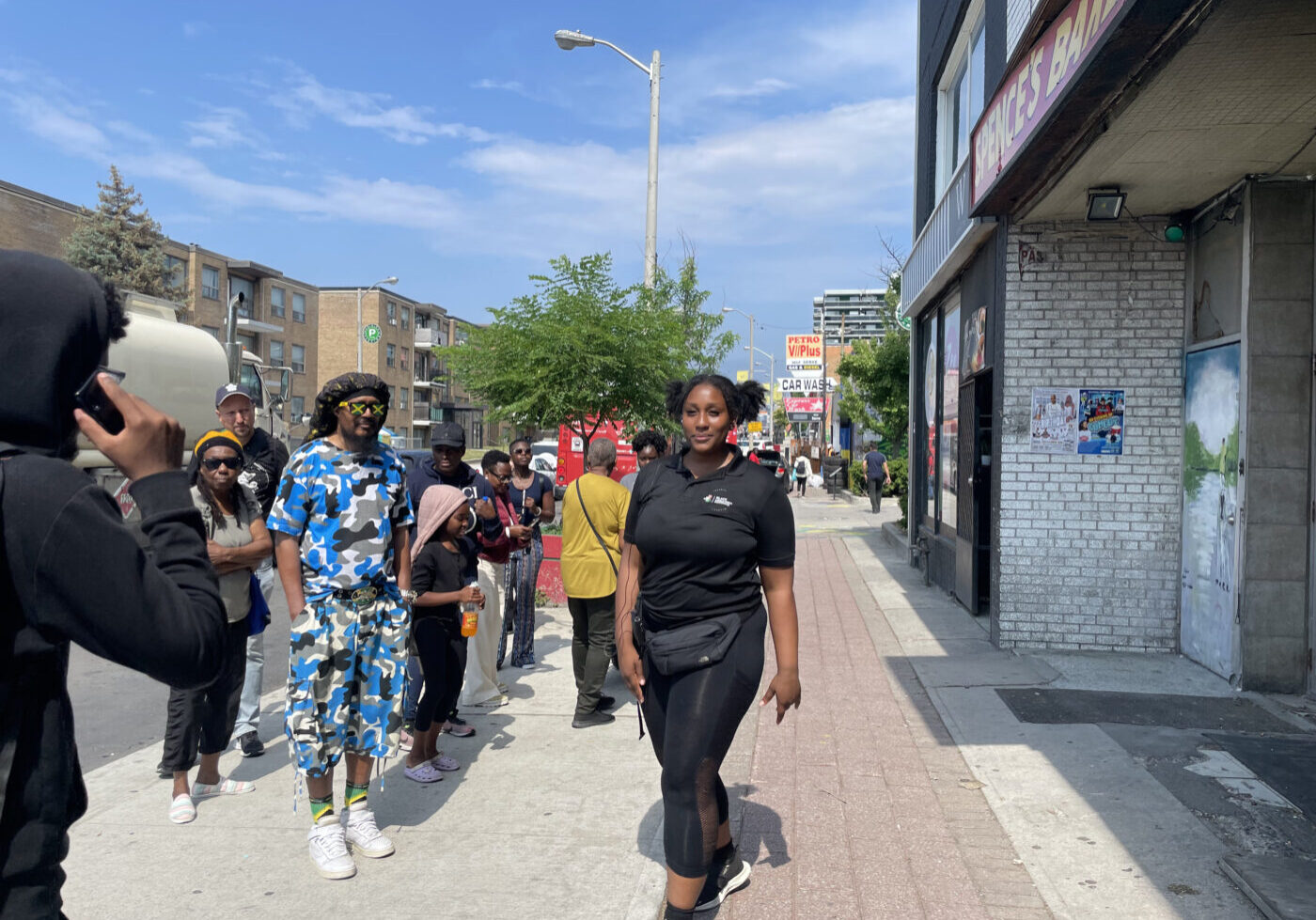
Anyika Mark, coordinator of the Little Jamaica Community Land Trust, leads a walk through Little Jamaica on Eglinton Avenue West.

On July 22, the land trust will hold its first interim board meeting to find local properties to buy. Meanwhile, it's hosting walking tours to bring in more foot traffic, and to preserve Little Jamaica's cultural heritage.
Fact-Check Yourself
Sources and
further reading
Don't take our word for it —
check our sources for yourself.
